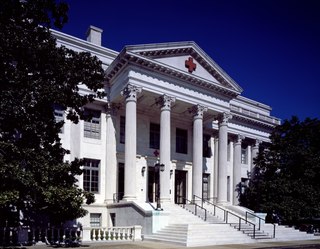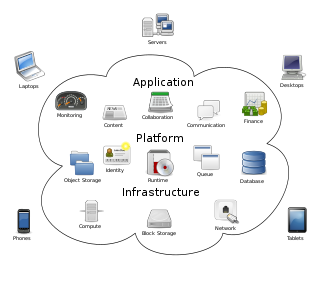Related Research Articles

Dichlorodiphenyltrichloroethane, commonly known as DDT, is a colorless, tasteless, and almost odorless crystalline chemical compound, an organochloride. Originally developed as an insecticide, it became infamous for its environmental impacts. DDT was first synthesized in 1874 by the Austrian chemist Othmar Zeidler. DDT's insecticidal action was discovered by the Swiss chemist Paul Hermann Müller in 1939. DDT was used in the second half of World War II to limit the spread of the insect-borne diseases malaria and typhus among civilians and troops. Müller was awarded the Nobel Prize in Physiology or Medicine in 1948 "for his discovery of the high efficiency of DDT as a contact poison against several arthropods".

Médecins Sans Frontières, also known as Doctors Without Borders, is a charity that provides humanitarian medical care. It is a non-governmental organisation (NGO) of French origin known for its projects in conflict zones and in countries affected by endemic diseases. The organisation provides care for diabetes, drug-resistant infections, HIV/AIDS, hepatitis C, tropical and neglected diseases, tuberculosis, vaccines and COVID-19. In 2019, the charity was active in 70 countries with over 35,000 personnel; mostly local doctors, nurses and other medical professionals, logistical experts, water and sanitation engineers, and administrators. Private donors provide about 90% of the organisation's funding, while corporate donations provide the rest, giving MSF an annual budget of approximately US$1.63 billion.

A refugee, conventionally speaking, is a person who has lost the protection of their country of origin and who cannot or is unwilling to return there due to well-founded fear of persecution. Such a person may be called an asylum seeker until granted refugee status by the contracting state or the United Nations High Commissioner for Refugees (UNHCR) if they formally make a claim for asylum.
Grid computing is the use of widely distributed computer resources to reach a common goal. A computing grid can be thought of as a distributed system with non-interactive workloads that involve many files. Grid computing is distinguished from conventional high-performance computing systems such as cluster computing in that grid computers have each node set to perform a different task/application. Grid computers also tend to be more heterogeneous and geographically dispersed than cluster computers. Although a single grid can be dedicated to a particular application, commonly a grid is used for a variety of purposes. Grids are often constructed with general-purpose grid middleware software libraries. Grid sizes can be quite large.
CARE is a major international humanitarian agency delivering emergency relief and long-term international development projects. Founded in 1945, CARE is nonsectarian, impartial, and non-governmental. It is one of the largest and oldest humanitarian aid organizations focused on fighting global poverty. In 2019, CARE reported working in 104 countries, supporting 1,349 poverty-fighting projects and humanitarian aid projects, and reaching over 92.3 million people directly and 433.3 million people indirectly.

The Berkeley Open Infrastructure for Network Computing is an open-source middleware system for volunteer computing. Developed originally to support SETI@home, it became the platform for many other applications in areas as diverse as medicine, molecular biology, mathematics, linguistics, climatology, environmental science, and astrophysics, among others. The purpose of BOINC is to enable researchers to utilize processing resources of personal computers and other devices around the world.

Humanitarian aid is material and logistic assistance to people who need help. It is usually short-term help until the long-term help by the government and other institutions replaces it. Among the people in need are the homeless, refugees, and victims of natural disasters, wars, and famines. Humanitarian relief efforts are provided for humanitarian purposes and include natural disasters and human-made disasters. The primary objective of humanitarian aid is to save lives, alleviate suffering, and maintain human dignity. It may, therefore, be distinguished from development aid, which seeks to address the underlying socioeconomic factors which may have led to a crisis or emergency. There is a debate on linking humanitarian aid and development efforts, which was reinforced by the World Humanitarian Summit in 2016. However, the conflation is viewed critically by practitioners.

World Community Grid (WCG) is an effort to create the world's largest volunteer computing platform to tackle scientific research that benefits humanity. Launched on November 16, 2004, with proprietary Grid MP client from United Devices and adding support for Berkeley Open Infrastructure for Network Computing (BOINC) in 2005, World Community Grid eventually discontinued the Grid MP client and consolidated on the BOINC platform in 2008. In September 2021, it was announced that IBM transferred ownership to the Krembil Research Institute of University Health Network in Toronto, Ontario.

Artesunate (AS) is a medication used to treat malaria. The intravenous form is preferred to quinine for severe malaria. Often it is used as part of combination therapy, such as artesunate plus mefloquine. It is not used for the prevention of malaria. Artesunate can be given by injection into a vein, injection into a muscle, by mouth, and by rectum.
Adi Patricia Roche is an Irish activist, anti-nuclear advocate, and campaigner for peace, humanitarian aid and education.

The Global Fund to Fight AIDS, Tuberculosis and Malaria is an international financing and partnership organization that aims to "attract, leverage and invest additional resources to end the epidemics of HIV/AIDS, tuberculosis and malaria to support attainment of the Sustainable Development Goals established by the United Nations". This multistakeholder international organization maintains its secretariat in Geneva, Switzerland. The organization began operations in January 2002. Microsoft founder Bill Gates was one of the first donors to provide seed money for the partnership. From January 2006 it has benefited from certain US Privileges, Exemptions, and Immunities under executive order 13395, which conferred International Organizations Immunities Act status on it.

The American Red Cross (ARC), also known as the American National Red Cross, is a nonprofit humanitarian organization that provides emergency assistance, disaster relief, and disaster preparedness education in the United States. It is the designated US affiliate of the International Federation of Red Cross and Red Crescent Societies and the United States movement to the International Red Cross and Red Crescent Movement.

Volunteer computing is a type of distributed computing in which people donate their computers' unused resources to a research-oriented project, and sometimes in exchange for credit points. The fundamental idea behind it is that a modern desktop computer is sufficiently powerful to perform billions of operations a second, but for most users only between 10–15% of its capacity is used. Common tasks such as word processing or web browsing leave the computer mostly idle.

ICVolunteers is an international non-profit organization (federation) active in the field of communications, in particular cyber-volunteerism, languages and conference support. ICVolunteers works with volunteers to implement social and educational programs to help populations and local communities to develop. Through volunteer effort, it cooperates with organizations in the humanitarian, social, environmental and medical fields to implement projects and conferences at local, national and international levels. In addition, ICVolunteers promotes volunteerism and its recognition, by enhancing civic commitment and involvement, and by providing leadership and links between organizations, individuals, and communities. With its headquarters in Geneva (Switzerland), ICVolunteers has offices and permanent representation in several other countries, including France, South Africa, Mali, Spain, Brazil and Canada.The work of ICVolunteers began was in 1997.
Translators without Borders (TWB) is a non-profit organization set up to provide translation services for humanitarian non-profits. It was established in 2010 as a sister organization of Traducteurs Sans Frontières, founded in 1993 by Lori Thicke and Ros Smith-Thomas. As of 2012, it had about 1600 vetted volunteer translators. TWB's objective is to address language disparities that impede crucial humanitarian efforts. They aim to accomplish this by facilitating collaboration between non-profit humanitarian entities and a volunteer community of translators.

Cloud computing is the on-demand availability of computer system resources, especially data storage and computing power, without direct active management by the user. Large clouds often have functions distributed over multiple locations, each of which is a data center. Cloud computing relies on sharing of resources to achieve coherence and typically uses a pay-as-you-go model, which can help in reducing capital expenses but may also lead to unexpected operating expenses for users.
The Small Arms Survey (SAS) is an independent research project located at the Graduate Institute of International and Development Studies in Geneva, Switzerland. It provides information on all aspects of small arms and armed violence, as a resource for governments, policy-makers, researchers, and activists, as well as research on small arms issues.

malariacontrol.net was a volunteer computing project to simulate the transmission dynamics and health effects of malaria. It was part of the Africa@home project.

Tedros Adhanom Ghebreyesus is an Ethiopian public health official, researcher, and the Director-General of the World Health Organization since 2017. Tedros is the first African to become WHO Director-General, receiving an endorsement for the role by the African Union. He played a role in the response to the Ebola virus epidemic, the COVID-19 pandemic, and the 2022–2023 mpox outbreak.
References
- ↑ "Volunteer computing for African humanitarian causes". Africa@home. Archived from the original on 28 April 2016. Retrieved 3 July 2017.
- 1 2 "Who is Africa@home?". Africa@home. Archived from the original on 30 October 2014. Retrieved 3 July 2017.
- ↑ V, Krebs (24 July 2007). "Training of trainers on Volunteer Computing for Africa". ICVolunteers. Archived from the original on 14 May 2015. Retrieved 3 July 2017.
- ↑ Maire (21 June 2016). "Status and plans as of June 2016". malariacontrol.net. Archived from the original on 22 July 2016. Retrieved 10 June 2017.